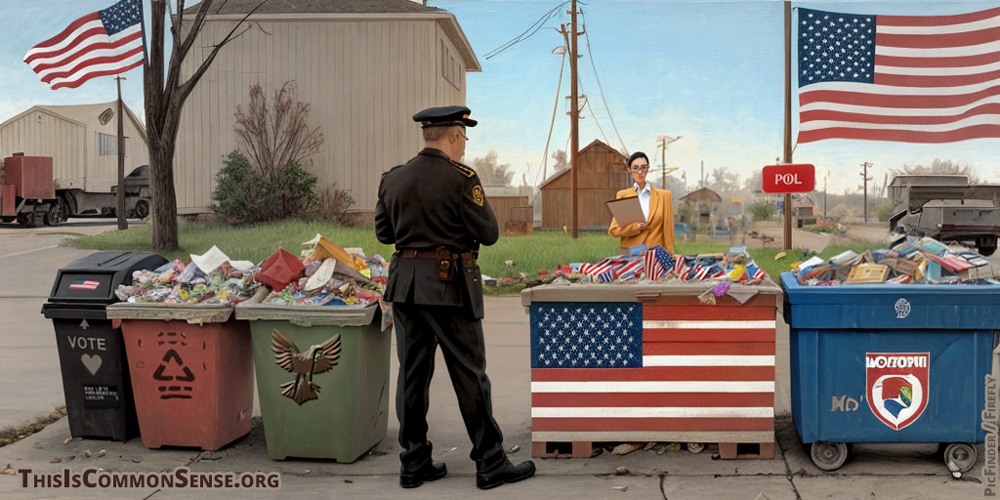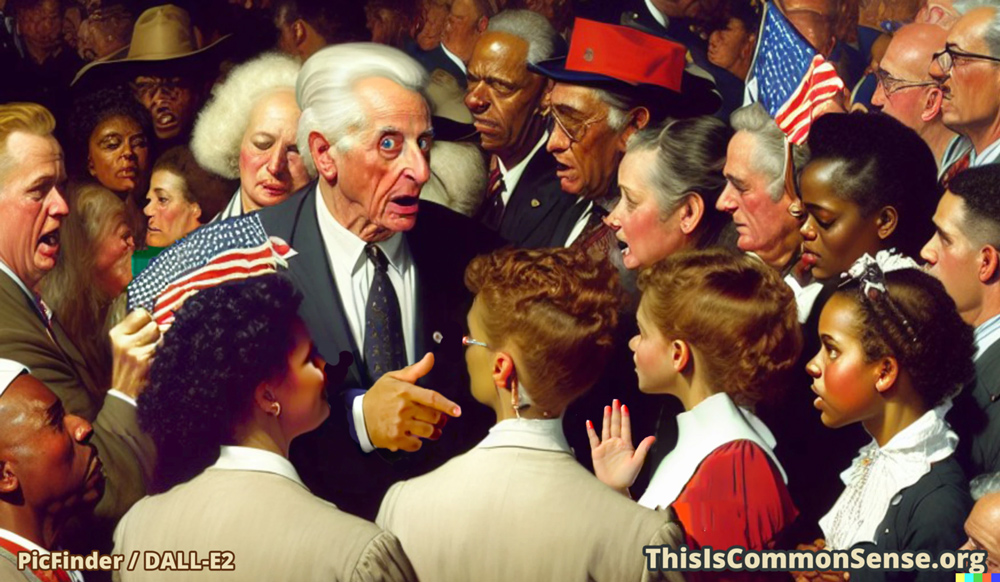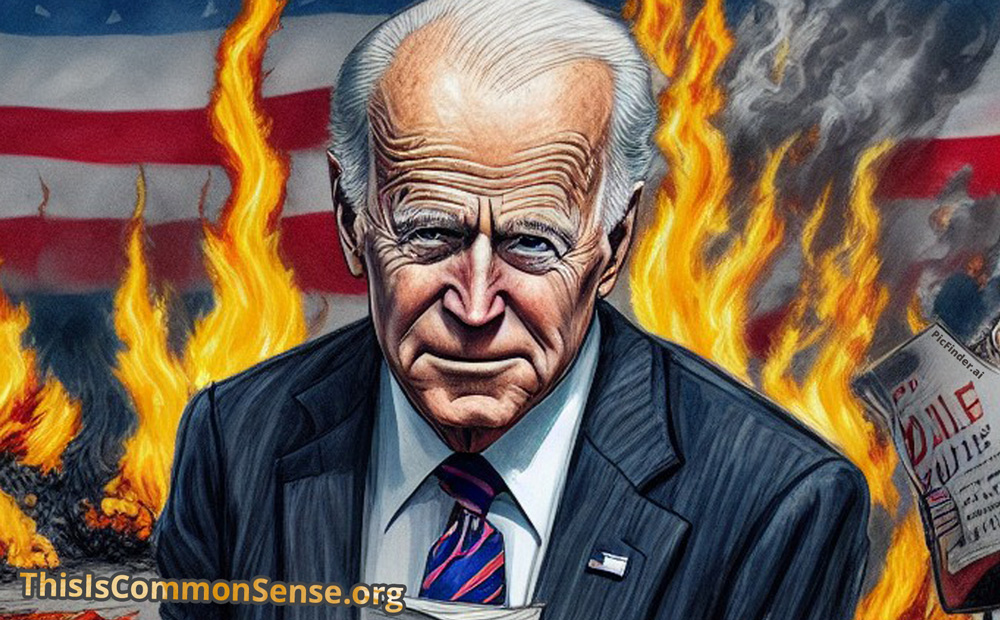It was a joke. For which he’s been sent to prison.
A political joke online.
Admittedly, it wasn’t very funny. It certainly wasn’t new. That is, the general idea has been floating around for as long as there have been ballot boxes.
The ur-form of the joke is “Hey, [political opponent], why don’t you deposit that ballot right here in this handy receptacle [trash can]?”
The specific joke that got Douglass Mackey into big trouble sported an image of a smiling black woman in front of a white-on-blue “African Americans for Hillary/President” sign, along with the message: “Avoid the line. Vote from home. ¶ Text ‘Hillary’ to 59925 ¶ Vote for Hillary and be a part of history.”
It arguably flirted with dirty tricks of the sort honest people don’t engage in. But a lot of partisans do that sort of thing, not just Mr. Mackey, who posted the joke to his now-defunct “Ricky Vaughn” Twitter account. A better version of the joke about the same time was not only never prosecuted, the link to it’s still on Twitter (X). It just so happens, however, to have been made by a Democrat . . . against Trump voters.
Trolls flirting with Dirty Trick status are not criminals; there is the First Amendment. But what Mackey was successfully prosecuted for (he was sentenced last week to seven months) was “Election Interference.”
Tellingly, ZERO is the number of voters stepping up to testify that they were tricked into texting 59925 and then not voting by his lame meme. If there were any, they might understandably be too humiliated to bear witness.
Curiously, the law he violated does not mention misinforming a person as a criterion for criminality.
A country that selectively prosecutes this sort of thing — can it be said to be free?
This is Common Sense. I’m Paul Jacob.
Illustration created with Picfinder and Firefly
—
See all recent commentary
(simplified and organized)





